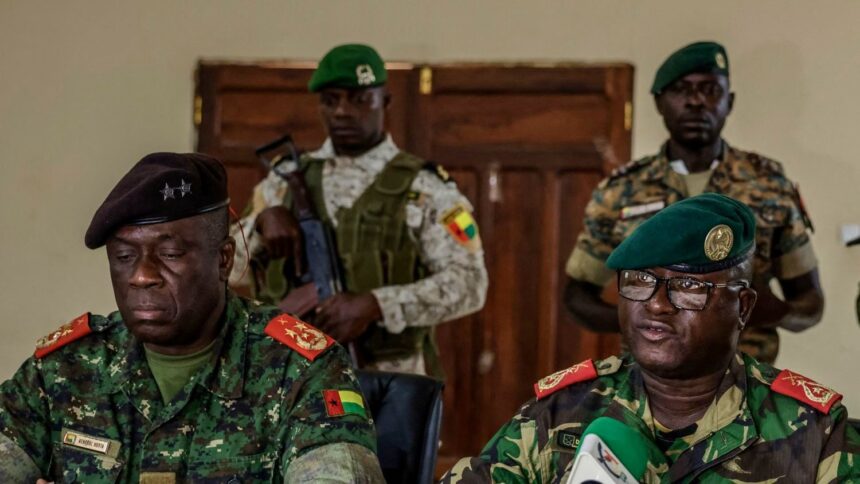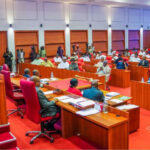Guinea-Bissau’s fragile democracy was shaken on Wednesday as military officers seized power, suspended the electoral process, and announced they would take control of the country indefinitely. The move came after incumbent President Umaro Embaló and opposition candidate Fernando Dias da Costa both declared victory in the November 23 presidential election, despite the absence of official results.
The tension had been building for days, with ECOWAS noting that the election period was already marred by deep security, political, and institutional concerns. Just before the campaigns began, the government claimed to have foiled an attempted coup, accusing Brigadier-General Daba Nawalna of orchestrating the plan.
Embaló was detained inside the presidential palace, along with armed forces chief Biaguê Na Ntan, Interior Minister Botché Candé, and deputy chief of staff Mamadu Ture. The military, led by spokesperson Diniz N’Tchama, announced the formation of the “High Military Command for the Restoration of Order” and imposed a nationwide curfew, shutting borders and suspending media operations.
The international community is on high alert, with ECOWAS and the African Union expressing concern over the military takeover and calling for the release of detained officials. The situation is fluid, with the military citing alleged electoral irregularities and manipulation by politicians and drug traffickers as reasons for their intervention.
Guinea-Bissau has a long history of political instability, with at least nine coups and attempted coups since independence from Portugal in 1974. The country’s latest turmoil raises questions about regional security and the future of democracy in West Africa.
Follow zeenaija for all your latest News update


